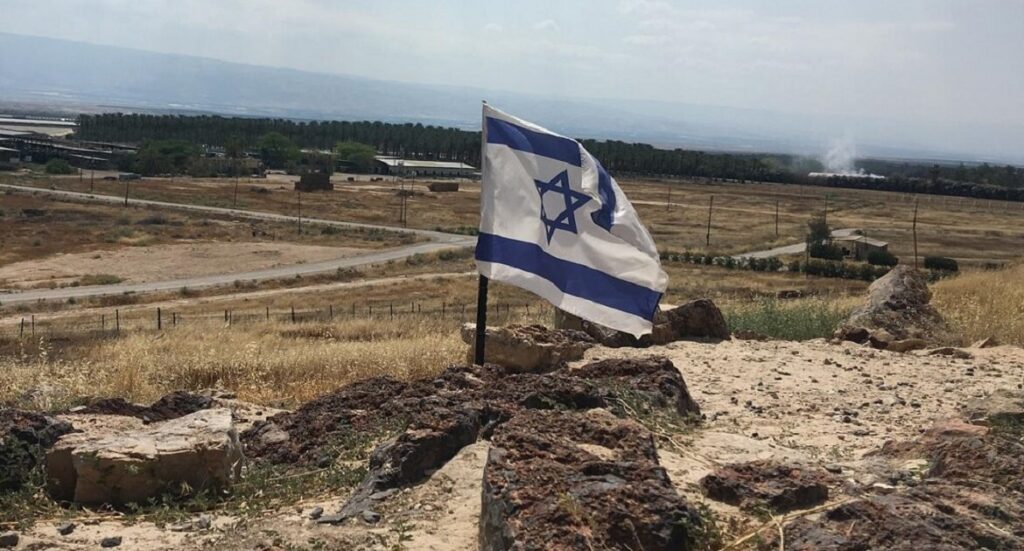By Giancarlo Elia Valori
Do you remember the so-called “Arab Springs”? The prevailing confusion, since January 2011, of the upheavals hetero directed by the United States of America, the United Kingdom and France in North Africa, which were fraudulently called “revolutions.
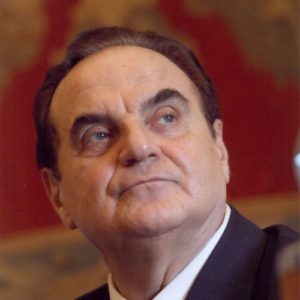
On the contrary, as we have well seen, the system of governance in North Africa has remained unchanged and, indeed, in Libya Gaddafi’s balance has been succeeded by Sarkozy’s tribalism, with the blessing of Washington, Paris and London. Italy had to follow, threatened by an EU “allies” bombing of ENI installations: a possible friendly fire with the signature of Paris and London (at that time not yet smelling of Brexit).
Let’s read the “Western” keys to the phenomena that unsettled the southern Mediterranean arc, with the attempt to pass off sedition as factors attracting masses of Muslims in revolt. According to certain embedded-copy-and-paste press, the rioters were yearning for multiparty liberal-democratic forms of government in which the gods of capitalism, we worship every day, would triumph there as well.
They used absurd vocabulary to describe the context – revolution, counterrevolution, springs, agora, sultan dictatorships, new “89s,” secularism, exit from the Middle Ages, entry into modernity, technology as progressivism (forgetting about DĀ’IŠ and al-Qā’ida), etc. – to masses that had and have nothing to do with the West, except colonize and plunder, and today possess in common only smartphones and the Internet.
The “Arab Springs” aimed first and foremost at destroying the Syrian and secular government of Bašššār Ḥāfiẓ ‘Alī al-Assad, Iran’s ally and Silk Road beachhead. After attempts that lasted thirteen years, al-Assad fell on December 8, 2024, in this latest outgrowth of the inauspicious “Arab Springs”, leaving Israel in deep concern about the Golan Heights.
The Golan Heights represent a bulwark of defense to the north, and as Prof. Aharon Bregman tells us, neither The Cursed Victory. History of Israel and the Occupied Territories (Einaudi, Turin, 2017): it has been a good fifty years since a shot was fired in the Golan Heights. This kind of modus vivendi was possible with the secular al-Assad, and certainly not with the current Syrian government made up of Jihadists and Salafists.
Let us go in order. Turkish foreign policy toward the Middle East since 2013, both in terms of the degree of activity on Ankara’s part and in terms of change of direction, has ranged from a policy that makes extensive use of the tools of soft power to one that relies more on the tools of hard power.
The so-called “Arab Springs” and intra-Turkish trends since 2013 have led Erdoğan to create a synthesis unique in Turkey’s history. From republican foreign policy he has taken nationalism, militarization and suspicion of the rest of the world, and from the Ottoman past he has taken the religious dimension, the element of expansion and revisionism.
Since this is a synthesis, sometimes one dimension prevails and sometimes another depending on the subject and period.
Although the danger to Israel is clear if the Islamic dimension was more prominent in Turkish foreign policy, it should also be noted that there are dangers from a nationalist-independent line in Turkish foreign policy as it brings it into conflict with some of Israel’s allies. In addition, the nationalist-independent line encourages Turkey to become increasingly self-sufficient and to self-produce advanced weapon systems that, even if they do not pose a direct and immediate threat to the Israel Defense Forces, may reach elements hostile to Israel.
From Republican foreign policy it has taken nationalism, militarization and suspicion of the rest of the world, and from the Ottoman past it has taken the religious dimension, the element of expansion and revisionism. Since this is a synthesis, sometimes one dimension prevails and sometimes another dimension, depending on the subject and the period.
Turkey established an entity in northern Syria controlled exclusively by Ankara, and Erdoğan did not imagine that it would have the opportunity to continue toward Damascus through Syrian opposition organizations. Ankara did not miss an opportunity when Russia, engaged in Ukraine, and Iran, in conflict with Israel, exited the scene for the time being. As a result, Sunni Turkey replaces Christian Russia and Shiite Iran as Syria’s protector.
The prevailing perception in the Middle East, beginning with the Obama I and II administrations and then during the Trump I administration, that the United States of America was seeking to reduce its involvement in the region, created a vacuum that encouraged countries in the region, and particularly Ankara, to take independent action. In short, the aftermath of the Arab “springs” turned into anti-Israeli actions under Turkish direction.
In addition to this, the understanding in Ankara of the changes that have taken place in the structure of the international system, from a unipolar system in which American dominance prevailed to a multipolar system in which the factors on which they are based can and should be diversified, leads Turkey to take more and more actions beyond what might be expected of a loyal NATO member. Turkey implements a dual form: Islamist but with an inclination to join the European Union.
One of the terms that often appears in the description of Turkey’s foreign policy is “neo-Ottomanism.” There are many commentators, both in the media and in the research world, who like to call Erdoğan “Sultan” and call his policy neo-Ottoman.
The use of the term neo-Ottomanism did not begin with Erdoğan, but was first widely used to describe the changes introduced by Turkish President Turgut Özal in Turkish politics in the 1980s. It comes to denote revolutionary changes from Turkey’s republican policy since Atatürk’s time, which advocated maintaining the status quo, and refers to Turkey’s increasing activity in the region and the entry of pan-Turkish and Islamic elements into the political narrative.
Today, the use of the expression neo-Ottomanism in international public opinion is often uttered by elements hostile to Turkey, who use it to denote Turkish expansionist intentions or to condemn measures that are not in line with the interests of the West, to which Turkey aspires to be a part. In the extreme presentation of the term, it is used to accuse Erdoğan of wanting to establish an area under Turkish control or influence along the lines of the old Ottoman Empire, or even to “re-establish the Ottoman Empire.”
The Ottoman past occupies more and more space in Turkish society as a whole and particularly in the statements of Erdoğan, who uses it to justify some of his activities, including in his foreign policy.
However, it can be argued that Turkish foreign policy is neo-Ottoman in the sense of activism and increased Turkish activity, and it is also impossible to deny the Ottoman shadow present in several Turkish steps in the international arena.
Although the Turkish leadership avoids using the expression neo-Ottomanism, especially to define its own policies, the Ottoman past occupies more and more space in Turkish society as a whole and particularly in the statements of Erdoğan, who uses it to justify some of his activities, including in his foreign policy. For example, the Turkish president justified his position regarding Jerusalem in October 2020 with the words, “In this city that we left in tears during World War I, the remnants of Ottoman resistance can still be seen. Therefore, Jerusalem is our city, it is our city.”
It is also possible to note the importance of areas that belonged to the Ottoman Empire in Turkish international efforts in Syria, Iraq, Libya, the eastern Mediterranean, and, to some extent, the Balkans. Nostalgia for the Ottoman Empire also plays an important role in Turkey’s soft power policy, as evidenced by the great success of Turkish “historical” television series in the Middle East, the Muslim world, and even the Balkans.
For example, Turkish operations in northern Syria and northern Iraq take place in areas that the Turkish National Movement defined as Turkish land until Atatürk agreed to give it up. For many Erdoğan supporters, the entry of Turkish forces into those areas is an achievement that compensates for this concession. Similarly, problems related to the delimitation of maritime borders in the eastern Mediterranean stem from certain provisions of the Treaty of Lausanne (July 24, 1923), signed by Atatürk after the Turkish War of Independence. In this area, too, Erdoğan may present himself as a step ahead of his famous predecessor. In many cases, the historical vision of the Turkish president is to compare himself to the secular Atatürk in a way that flatters him more than being a “new sultan.”
In conclusion, I would like to reaffirm and repeat that – in my opinion – the “Arab Springs” were a Western gift to Turkish neo-Ottomanism to rein in Ankara’s push towards the EU. It did not take a genius to realize that this would later turn into anti-Israeli maneuvers.
Author: Giancarlo Elia Valori – Honorary Professor at the Peking University, Honorable de l’Académie des Sciences de l’Institut de France.
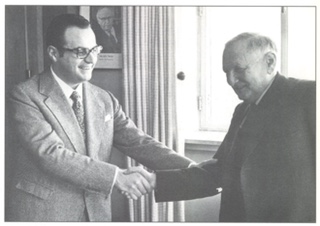
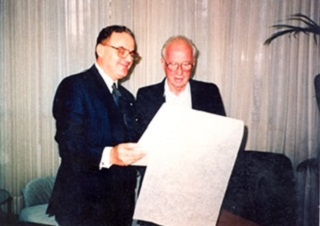
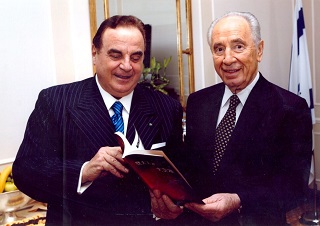
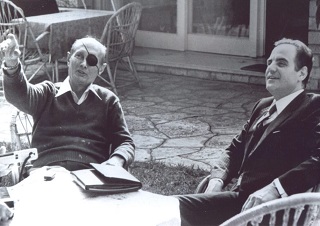
Giancarlo Elia Valori holds professorships in renowned universities, such as the Yeshiva University in New York, Hebrew University in Jerusalem and the Peking University in China. He has received numerous top honors, including that of Cavaliere di Gran Croce and Cavaliere del Lavoro al Merito of the Italian Republic, Cavaliere della Legion d’onore of the French Republic, Goodwill Ambassador of UNESCO, and Honorable of the Académie des Sciences de l’Institut de France.
Giancarlo Elia Valori is the author of numerous books, among them: Geopolitics of Space (2006), Anti Semitism, Holocaust, Denial (2007), Mediterranean between Peace and Terrorism (2008), The Future is Already Here (2009), The Way of China (2010), Geopolitics of Water (2012), Geopolitics of Food (2013), Free Until When? Artificial Intelligence, Fake News and the Future of Democracy (2020), Artificial Intelligence Between Myth and Reality. Engine of Development or Imminent Danger (2021), Cyberspace and Artificial Intelligence Between West and East (2023), Global Geopolitical Scenarios. Between New Planetary Order and Artificial Intelligence (2024).
(The views expressed in this article belong to the author and do not necessarily reflect the views of World Geostrategic Insights).







